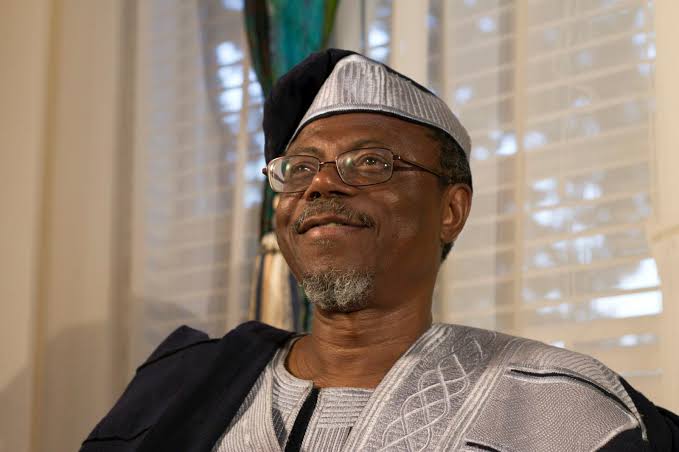
Transitioning into adulthood up to old age is a goal that everyone desires to accomplish in their lifetime. While many people do not have this opportunity, the few that do sometimes do not have results commensurate with that age bracket. Meanwhile, the attainment of desirable height in old age transcends building houses or accumulating material things; any development that does not facilitate human and personnel growth is anathema to its foundational essence. The attainment of old age, which perhaps begins by getting to 71 years of age, is a rare opportunity available to humans, and it is worth the effort when people who achieve the feat are celebrated and appreciated.
Toyin Falola has arrived at 71, and all his associates and friends are happy and joyous, and each of us makes recognizable efforts to outdo one another in that engagement. Extremely shy of receiving praise and recognition, it is even a stroke of luck if TF reads this piece! When I asked him whether he had read two long single-authored books on him, Toyin Falola and African Epistemologies and Falolaism: The Epistemologies and Methodologies of African Knowledge, he smiled, covered his mouth with his palm—his signature sign that a person must think before talking, and answered, “The past is not my future,” a way of saying that we should expect more books and essays. At 71, he has more energy than a graduate student and an Assistant Professor looking for tenure. Now recognized as a genius, anyone who tries to be like Falola is inviting a sudden death.
The celebration of Falola, I believe, is best done by reflecting on the incredible account of his efforts, which he has instituted as his signature in the community of human relationships and existence from the beginning to the present time. Falola’s accomplishments are undeniably stellar, and what he represents to humanity is more than can be contained in a few lines of orthographic gymnastics. But then, we can reflect on what Falola represents as an individual, a philosophical paradigm and a phenomenon himself.
Falola represents a pure and productive personality to the human world. For one, it should be stated clearly that this enigma of a human has given selfless service to humanity. He epitomizes humaneness. Throughout the stages of his academic history and career progress, he has continuously advanced the courses of people through his philanthropic disposition to people with whom he has no genetic or communal ties. Falola believes tenaciously that the growth of another individual has never been an impediment to others, and for that reason, he is a committed investor in the progress of others in ways that cannot be overemphasized. Falola has worked tirelessly in collaboration with responsible and responsive non-governmental organizations to secure funding opportunities for the defenceless people whose careers were on autopilot because of the foggy atmosphere occasioned by the lack of financial opportunities. Numerous is the number of people who are beneficiaries of the largesse of this outstanding scholar, thereby improving their existence through the access that they have to the help he provides. One would think that for a man who has reached the pinnacle of his career, having an interest in what concerns others would have been his turnoff. But this enigma has pulled great strides that defy the gravity of shortsightedness by continually dedicating himself to the concerns and aspirations of others in order that they would become not only valuable for themselves but also exceedingly useful for the generality of the human family.
Falola it was that has continued to offer requisite mentorship for fledgling academics in Africa and even beyond his understanding that the next generations of people have the right to be exposed to quality thinking, the one useful and necessary for the transformation of the world generally. His commitment to the improvement of the human condition is illustrated by the scholarship opportunities provided for the needy, the helpless or those without the necessary connections to access resources needed for their growth. It should be emphasized that all the activities of Falola in Africa outpace and even outshine many others who are domiciled in the continent. As much as he provides selfless services to people at his primary place of work, he has never let the in-house Africans feel his absence in some ways. Repeatedly, this sage has organized numerous academic undertakings that would benefit the people and the government, irrespective of the positions that they hold. For clarity, many of his efforts have necessitated policy adjustments, all of which are bringing desirable transformation to the continent. It is because of sharing his thoughts and ideas for the development of Africa and the world that Falola responds to calls and pleas in every place of the world. Risking his health, the man has dared an unimaginable number of challenges to ensure that he offers the best for humanity. Will it not surprise you that even during COVID-induced distancing, he was able to integrate online activities to continue helping humanity progress?
I have the honour to mention that Toyin Falola is a distinguished scholar and a doyen of academic excellence. For a very long time, this enigma has remained a leading light in African history and has used that wonderful experience to initiate programs of lasting influence. By all standards, it would be very difficult to argue against anyone who associated Falola with the gods. In all honesty, if he came at the early time of Yorùbá civilization, I could never doubt that he would have bagged the status of an Orisa. In simple language, Falola is an especially selected individual whose destiny is to enlighten people with the power of his pen. He is chosen to do what he does for the benefit of humankind. After all, we are many in the business of academic engagements, and we understand how time-consuming, usually demanding and ideologically overstretching the career of a teacher or lecturer could be. Despite the obvious systemic conundrum, Falola remains focused; he is still able to eke out numerous academic productions of the highest quality. He has demonstrated his dedication and consistency that he is unstoppable. Incidences as this are a testament to his extraordinary qualities and his willingness to always challenge himself. For us to understand the gravity of his commitment to academic excellence, we would have to conduct some statistical analysis of books and papers he has authored and then ask ourselves if we all have 24 hours a day as this man. I mean, it generally betrays conventional logic that for someone overtaken and overwhelmed with activities like him, he is still able to produce as many books as possible, showing that he is doing something entirely different from ordinary people.
It is as though the man comes from a different planet; one wonders how he maintains being an epitome of strong moral character in addition to all the great things that he represents. Of course, it is convenient to say that people of this calibre should, as a matter of necessity, remain impeccable and immaculate. It is, however, not the case when one understands the varying degrees of temptation that accompany people of his position. Apparently, apart from being considered confident, mentees also have numerous other things that can potentially distract an unserious individual. However, Falola has remained consistent with his outstanding quality to ensure that he does not compromise the profession of teaching. Beyond mentor-mentee privileges that can be unprofessionally exploited, there is also the possibility that he would have been entrusted with money for projects and programs of inestimable value without compromising them. The ability of people to continually entrust their hard-earned resources to the control of an individual over an expectation that they would use the resources justifiably relies on mutual trust and confidence. There must have been an establishment of an impregnable bond between himself and the various organizations that serve as funding baskets for the helpless and the defenceless. He is not a man embroiled in a scandal that could tarnish his image and spoil the good name he has built for himself. For this, I believe that Falola should be adequately celebrated and respected in all manners possible. It is a strong moral character that necessitates the ability to work with different calibres and groups of people without acrimony. The prospect of working together with individuals with whom one share different ideological philosophies must be one of the greatest potentials an individual can have. Falola has done this consistently and repeatedly.
It pleases me to identify, too, that more than academic engagements revolve around Falola. In fact, closer observation of his lifestyle would reveal the social aspect of the man. Above all, he respects his family. As a family man of excellence, Falola continues to ensure the wellness of his family structure, making the union productive, lovely, and lively. Until you access the personal lifestyle of the man, you would never have an idea of the level of intimacy, love, and affection he has for his family, which extends from his wife and their children and grandchildren, too.
To all of us, Falola is a distinguished scholar whom we always celebrate. To his family, he is the loving father who attends to the yearnings of his daughter; he is the affectionate father who attends to the demands of his son; he is the compassionate grandfather who is accessible to the grandchildren. It remains indisputable that much as one would believe that academic engagements are only the things that receive his attention, experience has proved that he is available and present in all aspects for the people who need him. Perhaps there is an underlying connection between this enigma and his image presented outside. An individual who has the utmost respect for his family and relations always finds it easy to integrative worldviews where they open their hearts and arms to different perspectives as much as that would bring about necessary changes in the human world.
Falola is humble to a fault, lively to a fault and radiates vibrant energies to people around him. His outstanding academic achievements are not what bring his attributes out; what makes him different is the fact that, despite his international scholarly acclaim, he is accessible and responsive to the people. The majority of what he does for others is inconvenient, but a man as committed as he never backs off from whatever would help to transform the human world. When his friends and associates are unwell, Falola organizes a chain of prayers, calls medical doctors on phones to seek solutions, and speaks to anybody who can help. Falola is always there for his friends in all senses of the world.
Our Buhaba, march on!
-Kamga is the Dean, Faculty of Law, University of the Free State, South Africa





